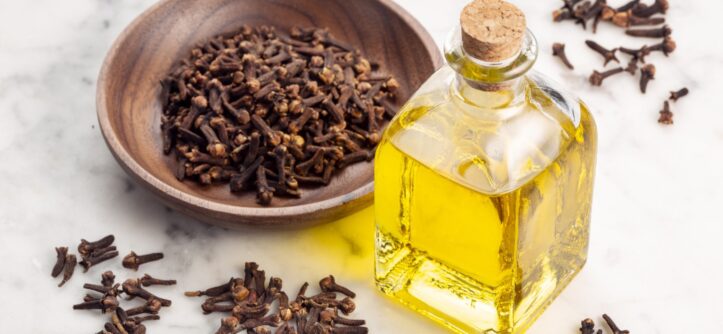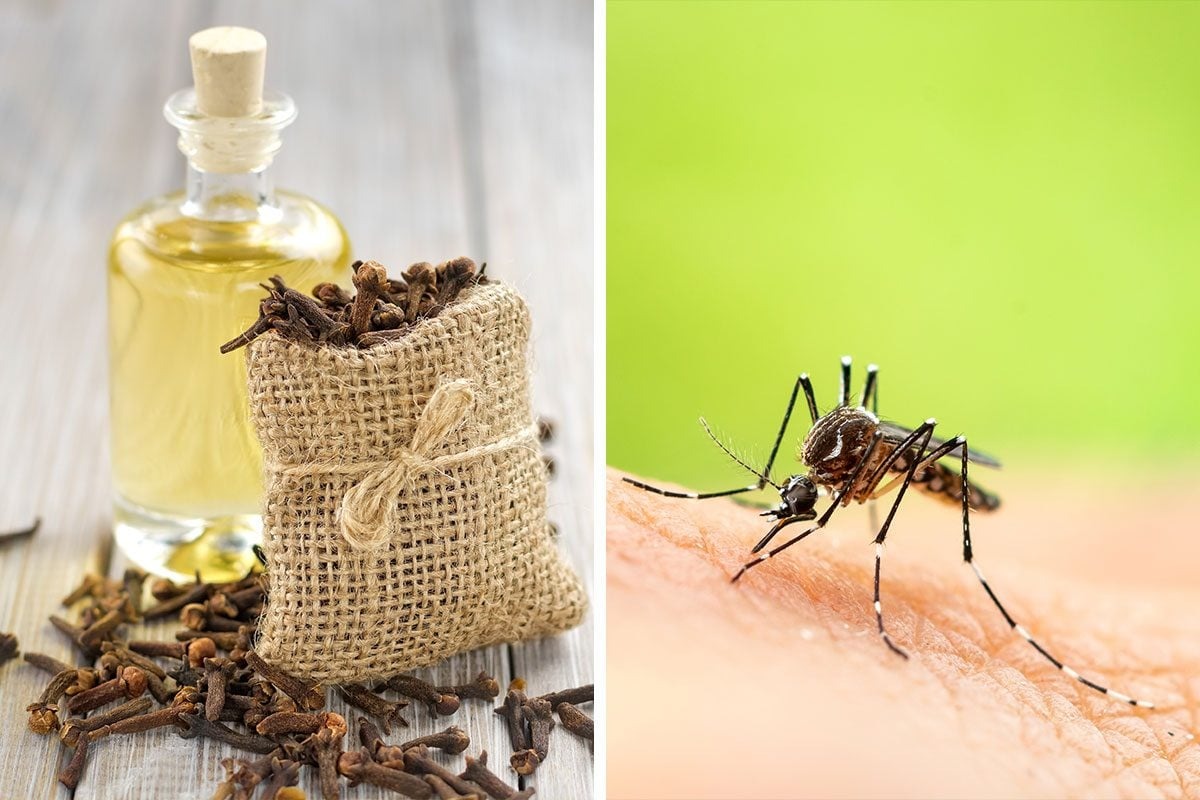Clove oil serves as a natural insect repellent that contains eugenol, a compound proven to deter mosquitoes, ants, flies, and other common household pests. This aromatic essential oil extracted from clove flower buds offers an eco-friendly alternative to synthetic chemical repellents. Scientific studies demonstrate its effectiveness against various insect species, making it a popular choice for homeowners seeking natural pest control solutions.
Many people turn to natural remedies when dealing with unwanted insects in their homes and gardens. The strong, spicy scent of cloves has been used for centuries in traditional pest management practices. Today, researchers have validated what our ancestors knew instinctively about this powerful botanical extract.
Understanding how clove oil as insect repellent works can help you make informed decisions about natural pest control methods. However, effectiveness varies depending on concentration, application method, and target insect species.
What Makes Clove Oil Effective Against Insects?
Eugenol, the primary active compound in clove oil, disrupts insect nervous systems and masks scent trails that attract pests. This phenolic compound comprises 70-90% of clove oil’s chemical composition, giving it potent insecticidal properties.
The mechanism works through multiple pathways. First, eugenol interferes with octopamine receptors in insect nervous systems, causing paralysis and death in high concentrations. Additionally, the strong aromatic profile overwhelms insect sensory organs, preventing them from detecting food sources or pheromone signals.
Research published in the Journal of Economic Entomology confirms clove oil’s effectiveness against mosquito larvae, with mortality rates exceeding 90% at proper concentrations. The compound also demonstrates contact toxicity, meaning insects die upon direct exposure to treated surfaces.
Beyond eugenol, clove oil contains other bioactive compounds like beta-caryophyllene and eugenyl acetate. These secondary compounds enhance the repellent effect through synergistic interactions, making whole clove oil more effective than isolated eugenol alone.
Temperature and humidity influence clove oil’s volatility and persistence. Higher temperatures increase evaporation rates, requiring more frequent applications but also enhancing immediate repellent effects.
Which Insects Does Clove Oil Repel Most Effectively?
Mosquitoes show the highest sensitivity to clove oil applications, with studies reporting 2-4 hours of protection when applied topically. Aedes aegypti and Anopheles gambiae species demonstrate particular vulnerability to eugenol exposure.
Ants respond strongly to clove oil barriers, as the compound disrupts their chemical communication pathways. Worker ants avoid treated areas and cannot establish new foraging trails when clove oil concentration remains adequate.
Flying insects like flies, gnats, and moths also show significant repulsion when exposed to clove oil vapors. The aromatic compounds interfere with their ability to locate breeding sites and food sources effectively.
Crawling pests including cockroaches, silverfish, and spiders demonstrate varying degrees of sensitivity. While not as effective as against flying insects, clove oil still provides moderate deterrent effects when applied consistently.
However, some insects show resistance to clove oil treatments. Wasps and bees may not respond as predictably, and certain beetle species appear less affected by standard concentrations used for other pests.
How Do You Properly Apply Clove Oil for Pest Control?
Dilution ratios matter significantly for both safety and effectiveness. Mix 10-20 drops of pure clove oil per ounce of carrier oil or water for topical applications. Higher concentrations may cause skin irritation in sensitive individuals.
For spray applications, combine clove oil with water and a small amount of dish soap to create an emulsion. The soap helps oil particles disperse evenly throughout the water, preventing separation and ensuring consistent coverage.
Target application areas include entry points, windowsills, doorframes, and areas where insects commonly gather. Reapply every 2-3 days or after rain, as natural oils break down more quickly than synthetic alternatives.
Indoor use requires proper ventilation, as concentrated clove oil vapors can be overwhelming for humans and pets. Start with lower concentrations and increase gradually based on effectiveness and tolerance levels.
Storage considerations include keeping prepared solutions in dark, cool locations to maintain potency. Glass containers work better than plastic for oil-based preparations, preventing degradation from chemical interactions.
Are There Any Safety Concerns with Clove Oil Repellents?
Skin sensitivity represents the most common concern when using clove oil topically. Undiluted clove oil can cause burns, redness, or allergic reactions in susceptible individuals. Always perform patch tests before widespread application.
Pet safety requires special attention, particularly for cats. Felines lack certain liver enzymes needed to process eugenol efficiently, making them more susceptible to toxicity. Consult veterinarians before using clove oil products around pets.
Pregnancy and nursing considerations suggest avoiding high-concentration clove oil applications. While generally recognized as safe in culinary amounts, concentrated essential oil use during pregnancy should involve medical consultation.
Children under two years old should not be exposed to undiluted clove oil applications. Their developing systems process essential oils differently than adults, potentially leading to unexpected reactions.
Respiratory sensitivity may occur in individuals with asthma or breathing disorders. The strong aromatic compounds can trigger respiratory distress in sensitive people, especially in poorly ventilated spaces.
How Does Clove Oil Compare to Commercial Repellents?
Duration of effectiveness typically favors synthetic repellents like DEET, which can provide 6-8 hours of protection compared to clove oil’s 2-4 hour window. However, natural options offer immediate relief without long-term chemical exposure concerns.
Cost analysis shows clove oil requiring more frequent applications but costing significantly less per ounce than commercial alternatives. The trade-off between convenience and natural ingredients appeals to different consumer preferences.
Environmental impact strongly favors clove oil, which biodegrades rapidly without accumulating in soil or water systems. Synthetic repellents can persist in the environment and potentially affect non-target species.
Effectiveness varies by target species, with some insects showing equal or greater sensitivity to clove oil compared to commercial products. Mosquitoes, in particular, respond well to properly applied clove oil treatments.
User experience differs significantly, as clove oil provides pleasant aromatic qualities while synthetic repellents often have offensive odors. Many users prefer the natural scent despite shorter protection periods.
What Scientific Evidence Supports Clove Oil’s Repellent Properties?
Peer-reviewed research consistently demonstrates clove oil’s insecticidal and repellent properties across multiple insect species. A 2018 study in Insects journal confirmed significant mortality rates in mosquito populations exposed to clove oil treatments.
Laboratory testing reveals eugenol’s mode of action involves blocking sodium channels in insect nerve cells, leading to paralysis and death. This mechanism differs from synthetic insecticides, potentially offering advantages in resistance management.
Field trials conducted in agricultural settings show clove oil reducing pest populations when applied systematically. These studies provide real-world validation beyond controlled laboratory conditions.
Comparative studies position clove oil among the most effective plant-based repellents, often outperforming citronella, peppermint, and lemongrass oils in head-to-head testing scenarios.
Long-term research indicates no significant resistance development in target insect populations, suggesting sustainable effectiveness over time. This contrasts with synthetic chemicals that often lose effectiveness as insects adapt.
Can You Make Your Own Clove Oil Insect Repellent at Home?
Basic spray recipes require only clove essential oil, water, and liquid soap as an emulsifier. Combine 15-20 drops of clove oil with one cup of water and one teaspoon of mild dish soap for general pest control applications.
Advanced formulations may include complementary essential oils like lavender, eucalyptus, or tea tree oil. These combinations can enhance effectiveness while providing more pleasant scent profiles for regular use.
Equipment needs remain minimal, requiring only spray bottles, measuring tools, and mixing containers. Glass spray bottles preserve oil integrity better than plastic alternatives over time.
Storage guidelines recommend keeping homemade preparations in cool, dark locations and using within 2-3 weeks for optimal potency. Label containers clearly with ingredients and preparation dates for safety tracking.
Quality control involves testing small batches before large-scale preparation. This approach allows adjustment of concentrations based on effectiveness and skin tolerance levels.
Teams at Team Red Byte have extensively tested various homemade formulations, providing detailed guides for safe and effective preparation methods.
Read More Also: Iwara Explained: What You Need to Know About the Platform
Conclusion
Clove oil demonstrates genuine effectiveness as a natural insect repellent, backed by scientific research and centuries of traditional use. While it may not provide the extended protection duration of synthetic alternatives, its eco-friendly profile and pleasant aroma make it an attractive option for many households.
The key to success lies in proper preparation, appropriate concentration levels, and realistic expectations about reapplication frequency. When used correctly, clove oil can significantly reduce insect populations while maintaining safety for family members and pets.
Consider incorporating clove oil into your integrated pest management strategy alongside other natural and conventional methods. This approach maximizes effectiveness while minimizing reliance on any single solution.
Ready to try natural pest control methods? Start with small test batches to determine optimal concentrations for your specific situation and gradually expand usage based on results and comfort levels.
Frequently Asked Questions
How long does clove oil repel insects?
Clove oil typically provides 2-4 hours of insect protection when applied topically. Environmental factors like temperature, humidity, and wind affect duration significantly.
Is clove oil safe for children and pets?
Diluted clove oil is generally safe for children over two years old and most dogs. However, cats are more sensitive to eugenol and require veterinary consultation before exposure.
What concentration of clove oil works best for repelling mosquitoes?
A 2-5% concentration of clove oil in carrier oil or water provides optimal mosquito repellent effects. Higher concentrations may cause skin irritation without significantly improving effectiveness.
Can clove oil kill insects or just repel them?
Clove oil both repels and kills insects depending on concentration and exposure duration. Direct contact with higher concentrations can cause mortality, while lower concentrations primarily provide repellent effects.
Does clove oil work better than citronella for pest control?
Research suggests clove oil often outperforms citronella in laboratory testing, particularly against mosquitoes and flying insects. However, individual results may vary based on application methods and environmental conditions.
How often should you reapply clove oil insect repellent?
Reapply clove oil repellent every 2-4 hours for continuous protection. Outdoor applications may require more frequent reapplication due to weather exposure and increased insect pressure.
What insects are most resistant to clove oil treatments?
Wasps, bees, and certain beetle species show higher resistance to clove oil compared to mosquitoes, flies, and ants. These insects may require higher concentrations or alternative natural repellent options.
clove-oil-insect-repellent-does-it-work






Leave a Reply